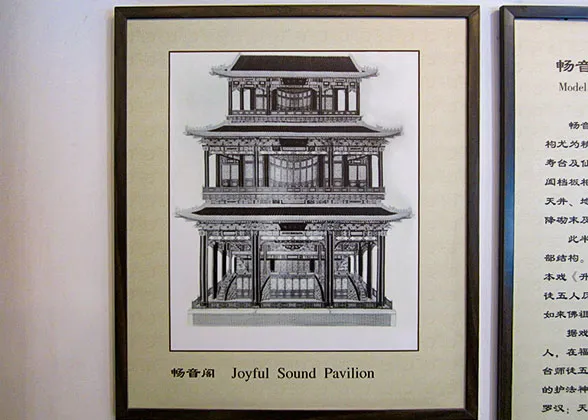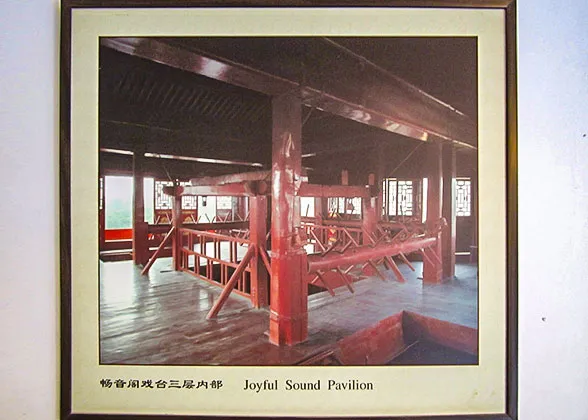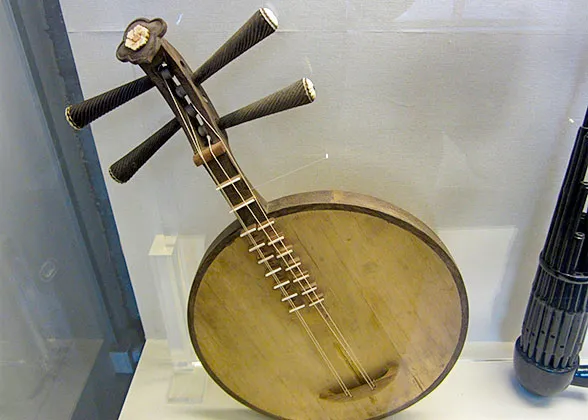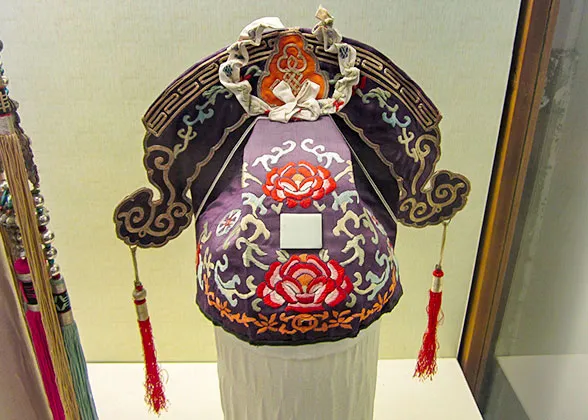Pavilion of Pleasant Sounds & Hall for Viewing Opera
In the Forbidden City, east of the Treasure Gallery area, stands the Pavilion of Pleasant Sounds (Changyinge), the largest theater in the palace, with a total height of 20.71 meters (68 feet) and an area of 685.94 square meters (7,380 square feet). North of it lies the Hall for Viewing Opera (Yueshilou), a dedicated space for watching the performances.
Why Built? - Qing Court's Love for Opera
The imperial family in the Qing Dynasty (1644~1911) had a deep fondness for opera, with Emperor Qianlong (1711~1799) being a particular enthusiast. His passion led to the construction of both the Pavilion of Pleasant Sounds and the Hall for Viewing Opera in 1722.
Several Qing Dynasty emperors showed a profound fascination with operatic performances.
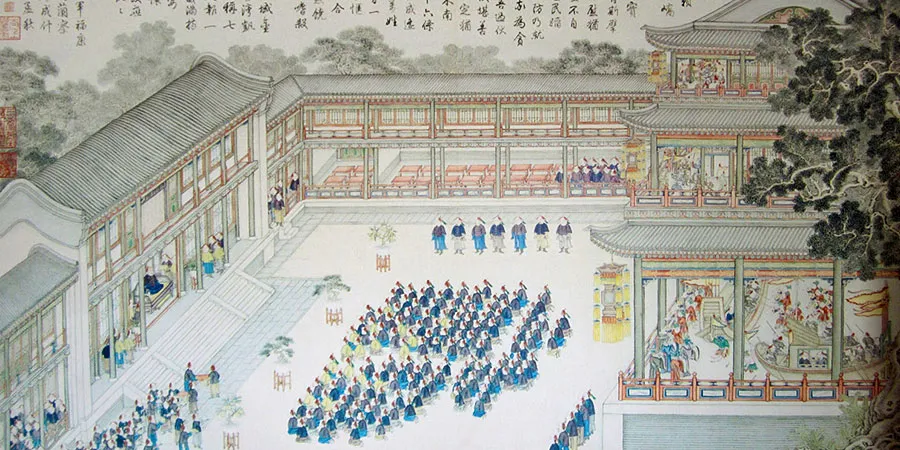 |
| Painting of the Qing Court Watching Opera |
For example, upon arriving in Suzhou (a place known for Kunqu Opera) during his southern tour, Emperor Kangxi immediately summoned local opera troupes and watched over 20 performances overnight.
Emperor Tongzhi (1856~1875) once joined eunuchs in an acting performance to delight his mother, Empress Dowager Cixi (1835~1908). In one scene, he was supposed to bow to a eunuch. The eunuch, overwhelmed, knelt down and said, “Your Majesty, I dare not accept your bow.” Tongzhi ordered him to stand up and continue, bringing great joy to Cixi.
Pavilion of Pleasant Sounds: A Theater Connecting Heaven, Earth, & Underworld
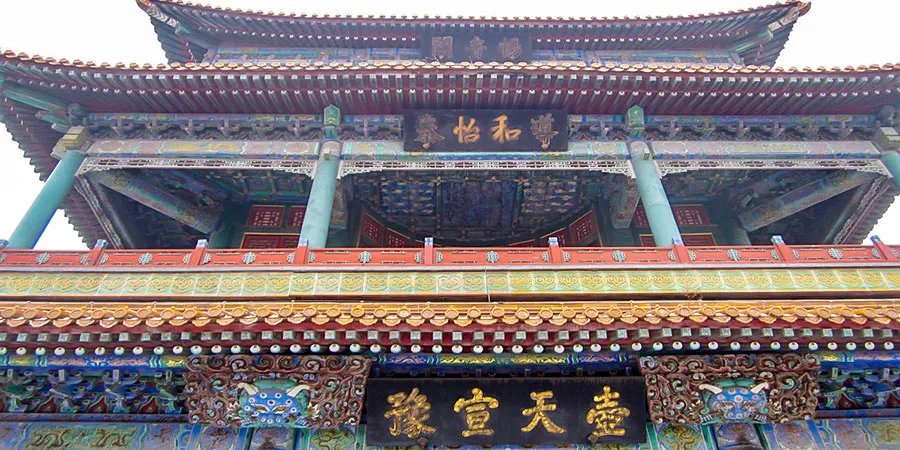 |
| Pavilion of Pleasant Sounds |
The Pavilion of Pleasant Sounds spans three floors named Fortune (Fu), Prosperity (Lu), and Longevity (Shou), respectively as the Heaven, Earth, and Underworld. It can accommodate up to a thousand performers.
During performances, actors stationed across all floors by winches, pulleys, and ropes resembling modern wire stunts, to create vivid scenes such as "Pilgrims' Journey", "Immortals Celebrating Longevity", and "The Blissful Realm".
Underground Wells
Under the ground Longevity Floor, there is a central water well that sprays water and amplifies sound, along with four corner dry wells that serve as amplifiers and for lifting and lowering actors and props, such as the five Buddha thrones ascending seamlessly in the "Golden Lotus Emerging from the Earth" scene.
|
|
Skylights
Skylights on both the second and third floors enables performances where celestial beings descend to Earth by tools like pulleys, creating a dramatic effect as if they are appearing from the Heaven.
Hall for Viewing Opera: A Strictly Hierarchical Viewing Platform
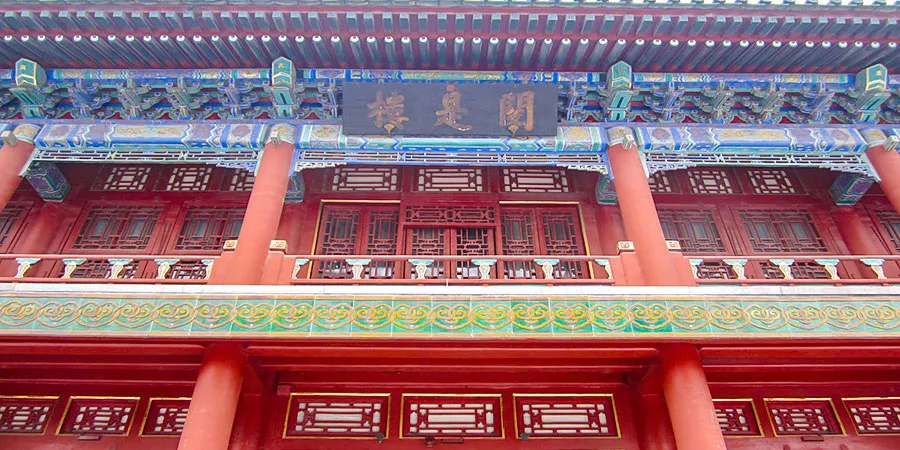 |
| Hall for Viewing Opera |
In the heart of Hall for Viewing Opera, three private boxes are reserved solely for the Emperor, Empress Dowager, and Empress. On either side, rooms are designated for the imperial concubines.
Ministers, categorized by their ranks and statuses, are seated in ten groups in partitioned rooms on the east and west verandas of the Pavilion of Pleasant Sound's courtyard.
While Viewing Performances at the Hall: No Applause Allowed!
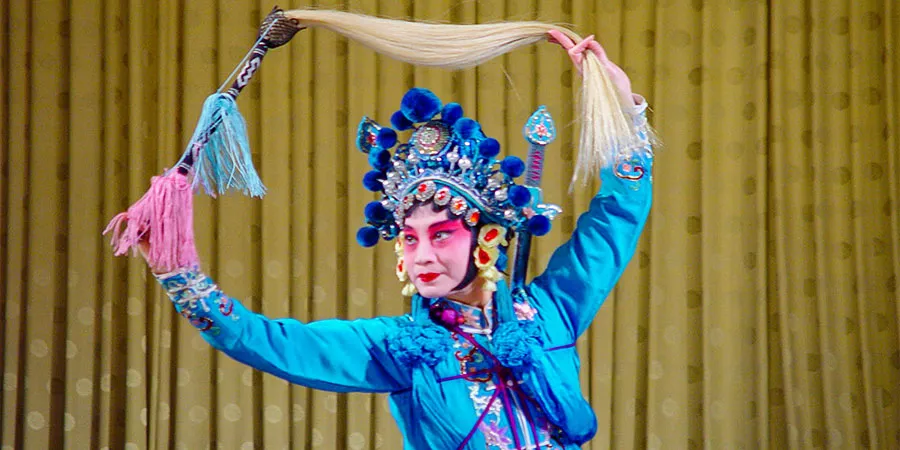 |
| Beijing Opera Performance |
In the Qing Dynasty, a unique etiquette was observed during performances: applause and cheers were strictly forbidden, no matter how captivating the show might have been. This was due to the artists' lowly status at the time, where cheering for them was seen as beneath one's dignity.
What Operas were shown in the Pavilion of Pleasant Sounds?
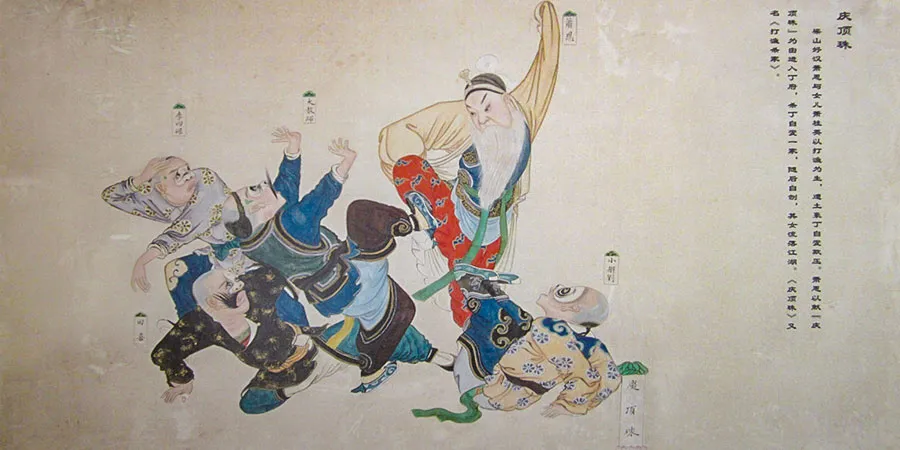 |
| Opera Performance in Qing Dynasty |
During palace festivals and solar terms, such as New Year's Eve, the Beginning of Spring, and the Emperor's and Empress Dowager's birthdays, ascensions, and enthronements, the place would come alive with Chinese opera performances, like the ancients' TV series.
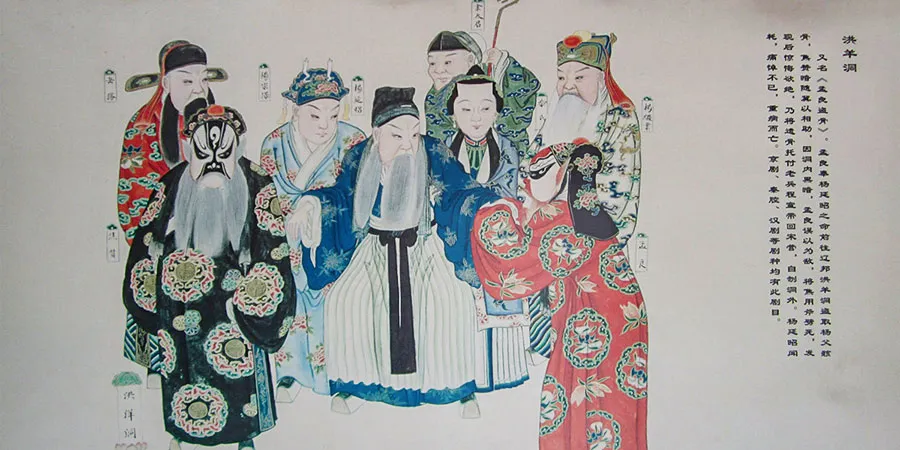 |
| Opera Performance in Qing Dynasty |
A professional troupe was stationed at the palace, presenting dramas tailored to the season and occasion. For instance, dramas like "Morning Congratulations in Early Spring" would be staged on the day of the Beginning of Spring, while "Flourishing Flowers" would captivate audiences during the Lantern Festival.
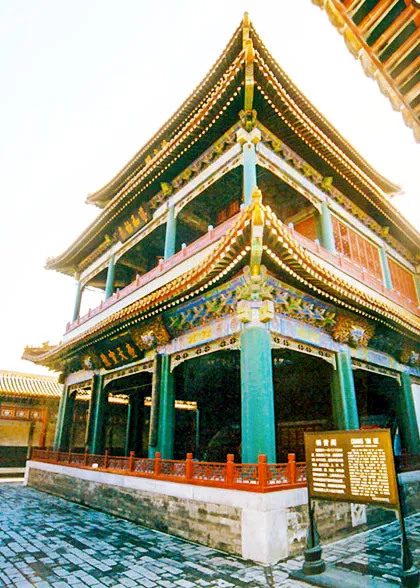 |
| Pavilion of Pleasant Sounds |
Most dramas focused on praising virtues and bringing good fortune, with popular romantic and detective dramas only introduced in late 19th century by folk troupes.
Empress Dowager Cixi's Lavish 50th Birthday Celebration
In 1884, to celebrate Empress Dowager Cixi's (1835~1908) 50th birthday, grand performances were held at the Pavilion of Pleasant Sounds from lunar September 22nd to 28th, and again from October 8th to 16th, with each daily performance lasting six to seven hours. The Pavilion were adorned with over 450 blessing lanterns.
On her birthday, Cixi watched performances in the Hall for Viewing Opera with Emperor Guangxu (1871~1908), his concubines, noble lords and ministers. During the performance, the lords and ministers were treated to peach-shaped dessert symbolizing longevity, and premium bird's nest soup. For this lavish celebration, over 110,000 taels (37,037 pounds) of silver were spent.
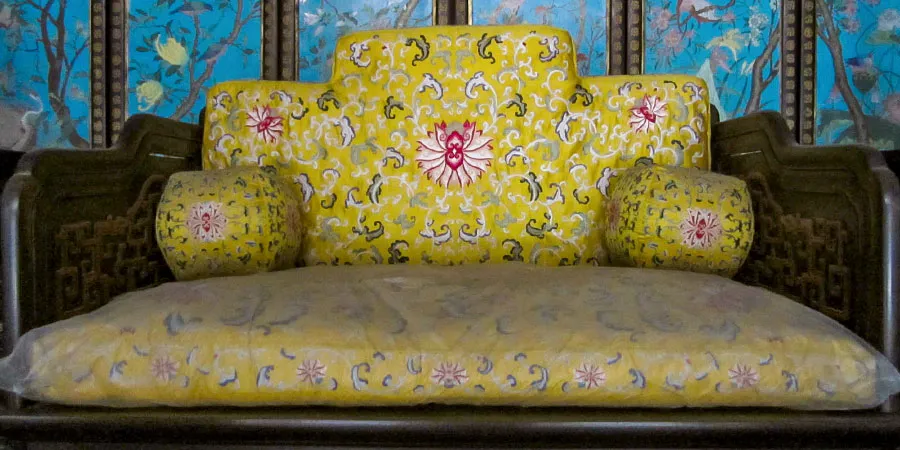 |
| Soft Seat for Watching Opera |
Questions You May Ask about Pavilion of Pleasant Sounds & Hall for Viewing Opera
1. Are there any other opera venues in the Forbidden City?
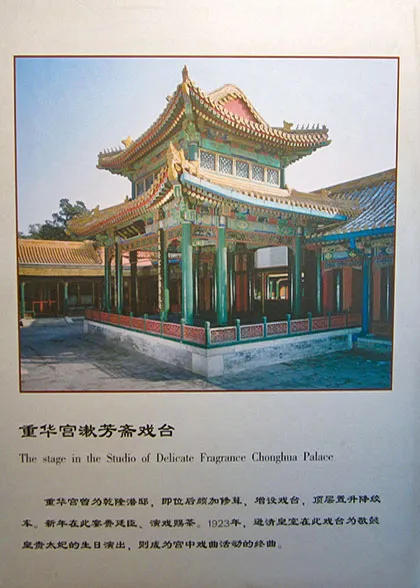 |
| Studio of Cleansing Fragrance |
Besides Pavilion of Pleasant Sounds, there were originally several theaters in the Forbidden City, such as Studio of Cleansing Fragrance (Shufangzhai) in Palace of Many Splendors (Chonghuagong), Studio of Exhaustion from Diligent Service (Juanqinzhai) in Qianlong Garden, and Palace of Eternal Spring (Changchungong). However, only Pavilion of Pleasant Sounds and Studio of Cleansing Fragrance can be viewed externally now, as the others are either shut down or in disrepair.
2. Do I need another ticket for Pavilion of Pleasant Sounds and Hall for Viewing Opera?
Once you've got your Forbidden City ticket, you'll need an additional 10-yuan ticket for the Treasure Gallery, which covers both Pavilion of Pleasant Sounds and Hall for Viewing Opera.
3. Can I go inside these two buildings?
Currently, you can only take in the sights from the outside. Pavilion of Pleasant Sounds, which used to be an opera art museum, is undergoing renovations and we anticipate its future reopening.
|
|
- Last updated on Aug. 01, 2025 by Gabby Li -
